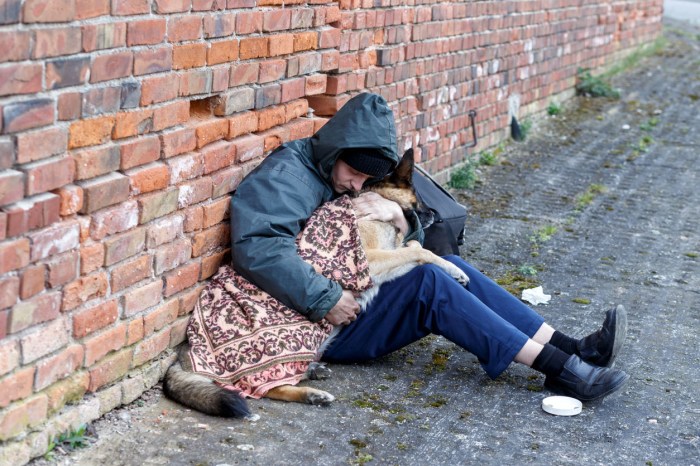A vet for homeless pets achieve 3000 – A vet for homeless pets achieves 3,000, a significant milestone in providing veterinary care to animals in need. This achievement highlights the dedication and impact of organizations dedicated to the well-being of homeless pets.
The organization’s approach to veterinary care focuses on addressing the specific needs of homeless pets, offering a range of services that improve their health and quality of life.
Introduction

Providing veterinary care to homeless pets is a crucial aspect of animal welfare that often goes overlooked. These animals face unique challenges and vulnerabilities that require specialized attention, making it essential to establish organizations dedicated to meeting their specific needs.
One such organization has recently achieved a significant milestone by providing veterinary care to 3,000 homeless pets, demonstrating the transformative impact of their efforts.
Organization Profile
The organization that has achieved this milestone is “Hope for Homeless Pets,” a non-profit organization dedicated to providing comprehensive veterinary care to homeless pets and their human companions. Their approach focuses on a holistic understanding of the needs of both animals and their owners, recognizing the inseparable bond between them.
Through mobile clinics, partnerships with shelters, and a dedicated team of veterinarians and volunteers, Hope for Homeless Pets has made a profound impact on the lives of countless animals.
Services Provided

Hope for Homeless Pets offers a wide range of veterinary services tailored to the specific needs of homeless pets, including:
- Wellness exams and vaccinations
- Spay and neuter surgeries
- Treatment for injuries and illnesses
- Dental care
- Behavioral counseling
These services address the unique challenges faced by homeless pets, such as exposure to harsh environments, lack of access to regular care, and potential behavioral issues. By providing these essential services, Hope for Homeless Pets significantly improves the health and well-being of homeless animals.
Case Studies: A Vet For Homeless Pets Achieve 3000
The impact of Hope for Homeless Pets’ services is evident in the countless success stories of animals that have received care through their programs. One such story is that of “Max,” a stray dog found wandering the streets with a severe skin infection.
Thanks to the organization’s mobile clinic, Max received prompt treatment, antibiotics, and a warm place to recover. Within weeks, his infection had cleared, and he was adopted into a loving home.
Challenges and Opportunities

While Hope for Homeless Pets has made significant strides, they continue to face challenges in providing veterinary care to homeless pets. One ongoing challenge is funding, as these services are often costly and rely heavily on donations and grants. Additionally, the transient nature of homeless pets can make it difficult to provide consistent care and follow-up.
Despite these challenges, Hope for Homeless Pets remains committed to expanding their reach and impact. They are actively exploring partnerships with animal shelters, community organizations, and veterinary schools to increase their capacity and develop innovative solutions to the challenges they face.
Collaboration and Support
The success of Hope for Homeless Pets is a testament to the power of collaboration and support from the community. Volunteers play a vital role in providing hands-on assistance with animal care, fundraising, and outreach. Donors and corporate sponsors provide financial support that enables the organization to continue its life-saving work.
Individuals can contribute to the cause by volunteering their time, making donations, or spreading awareness about the organization’s mission. Every contribution, no matter how small, makes a tangible difference in the lives of homeless pets.
FAQ Section
What types of veterinary services are offered by the organization?
The organization offers a range of veterinary services tailored to the needs of homeless pets, including vaccinations, spaying and neutering, parasite control, wound care, and emergency medical treatment.
How does the organization ensure the well-being of homeless pets beyond veterinary care?
In addition to providing veterinary care, the organization works closely with animal shelters and rescue groups to promote adoption and responsible pet ownership. They also offer educational programs and resources to the community on pet care and welfare.